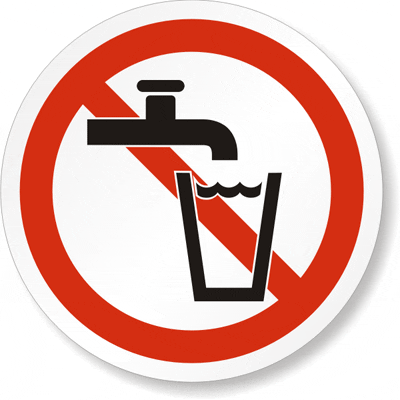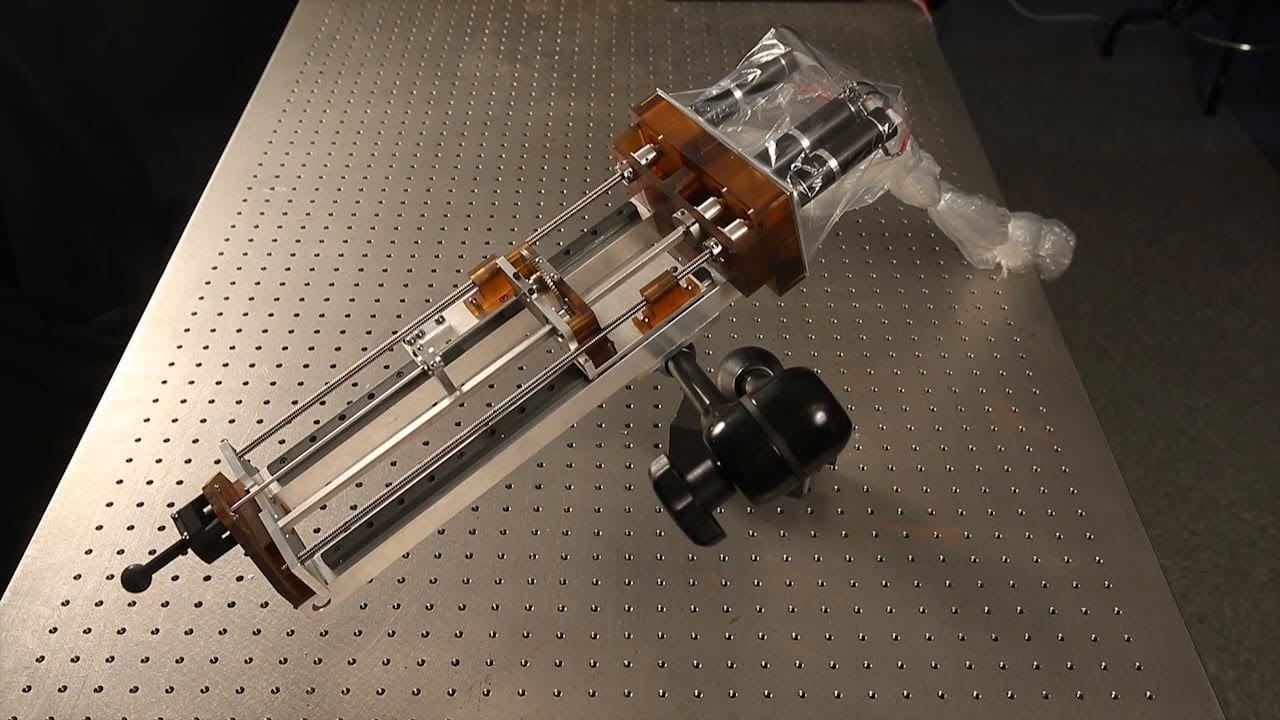
Before the digital age, neuroscientists got their information in the library like the rest of us.
But the field’s explosion has created nearly 2 million papers — more data than any researcher can read and absorb in a lifetime.
That’s why a UCLA team has invented research maps. Equipped with an online app, the maps help neuroscientists quickly scan what is already known and plan their next study. The Aug. 8 edition of Neuron describes the findings.
“Information overload is the elephant in the room that most neuroscientists pretend to ignore,” explained principal investigator Alcino Silva, a professor of neurobiology at the David Geffen School of Medicine at UCLA and of psychiatry at the Semel Institute for Neuroscience and Human Behavior. “Without a way to organize the literature, we risk missing key discoveries and duplicating earlier experiments. Research maps will enable neuroscientists to quickly clarify what ground has already been covered and to fully grasp its meaning for future studies.”
Silva collaborated with Anthony Landreth, a former UCLA postdoctoral fellow, to create maps offering simplified, interactive and unbiased summaries of findings designed to help neuroscientists in choosing what to study next. As a testing ground for their maps, the team focused on findings in molecular and cellular cognition.
UCLA programmer Darin Gilbert Nee also created a web-based app to help scientists expand and interact with their field’s map.
“We founded research maps on a crowd-sourcing strategy in which individual scientists add papers that interest them to a growing map of their fields,” explained Silva, who started working on the problem nearly 30 years ago as a graduate student, and coauthored with Landreth an upcoming Oxford Press book on the subject. “Each map is interactive and searchable; scientists see as much of the map as they query, much like an online search.”
According to Silva, the map allows scientists to zero in and out of areas that interest them. By tracking published findings, researchers can determine what’s missing and pinpoint worthwhile experiments to pursue.
“Just as a GPS map offers different levels of zoom, a research map would allow a scientist to survey a specific research area at different levels of resolution –from coarse summaries to fine-grained accounts of experimental results,” said Silva. “The map would display no more and no less detail than is necessary for the researcher’s purposes.”
Each map encodes information by classifying it into categories and scoring the weight of its evidence based on key criteria, such as reproducibility and convergence, when different experiments point to a single conclusion.
The team’s next step will be to automate the map creation process. As scientists publish papers, their findings will automatically be added to the research map representing their field.
According to Silva, automation could be achieved by using journals’ existing publication process to divide an article’s findings into smaller chapters to build nano-publications. Publishers would use a software plug-in to render future papers machine-readable.
A more direct approach would add special fields into the templates for journal article submission. The data resulting from these fields could be published to a public database, which would provide the foundation for research maps.
“Western societies invest an enormous amount into science, and research maps will optimize that investment,” observed Silva. “One day, we will look back on the pre-map era of experiment planning with the same incredulity we now reserve for research conducted prior to statistics.”
The Latest Bing News on:
Science information overload
- Nuwellis Announces Purchase Agreement with a 50 Hospital Network for Aquadex Ultrafiltration Therapyon May 9, 2024 at 6:00 am
MINNEAPOLIS, May 09, 2024 (GLOBE NEWSWIRE) -- (Nasdaq: NUWE), a medical technology company focused on transforming the lives of people with fluid overload, today announced a new purchase agreement ...
- Three reasons why smoke-free products will replace cigaretteson May 8, 2024 at 3:44 am
They erode our trust in facts, leading to confusion and poor decision-making.” ALSO READ: Embrace innovation to end smoking faster, says Philip Morris South Africa He cites smoke-free alternatives to ...
- PsyCap: Your own bank of positive resources. Will it help you look at work positively in tough moments?on May 5, 2024 at 5:00 pm
A quarrel with a co-worker, task overload, a difficult relationship with the boss... Each of us reacts slightly differently to problematic events in our professional lives. Such events often result in ...
- Recruiters Are Going Analog to Fight the AI Application Overloadon April 29, 2024 at 2:00 am
Indeed and LinkedIn are incorporating more generative AI to improve the recruiting and job-hunting processes. Some recruiters are still unconvinced.
- How to Keep Information Overload From Jeopardizing Your Next Projecton April 21, 2024 at 5:00 pm
The concept of information overload was first discussed in 1964 by Bertram Gross, a political science professor at Hunter College. It was then explored in more depth in 1970 in Alvin Toffler’s ...
- Study examines influence of social media on televised debate viewingon April 16, 2024 at 5:01 pm
More information: Freddie J. Jennings et al, Visual overload: The influence of broadcast social media visuals on televised debate viewing outcomes, Journal of Visual Political Communication (2024).
- 'Magical Overthinking' author says information overload can stoke irrational thoughtson April 9, 2024 at 9:37 am
She's also the author of Cultish: The Language of Fanaticism. How is it that we are living in the information age — and yet life seems to make less sense than ever? That's the question author ...
- Practical Ontologies for Information Professionalson October 5, 2023 at 12:11 am
Science and Transport Progress , p ... have become increasingly important in the context of today's information overload and data deluge. The publishing and sharing of explicit explanations for a wide ...
- Late Adds, Change Variable Credit Hours, & Overloadson September 11, 2023 at 6:42 pm
Information about overloads to 19 credit hours, late adds, and changing variable credits after the add/drop deadline The Office of the University Registrar will review certain requests in the current ...
- Information Overloadon April 28, 2022 at 9:30 am
Use these five strategies to stop information overload before it consumes you. We'll be in your inbox every morning Monday-Saturday with all the day’s top business news, inspiring stories ...
The Latest Google Headlines on:
Science information overload
[google_news title=”” keyword=”Science information overload” num_posts=”10″ blurb_length=”0″ show_thumb=”left”]
The Latest Bing News on:
Information Overload Threatening Neuroscience
- Visual Neuroscienceon May 8, 2024 at 12:02 am
Please be aware that your Cambridge account is not valid for this OPRS and registration is required. We strongly advise you to read all "Author instructions" in the "Journal information" area prior to ...
- Information overload is a personal and societal danger, researchers sayon March 14, 2024 at 1:59 pm
The idea to explore information overload was incubated in a meeting of an international group of scientists two years ago, all of whom were supported by an E.U. grant for international collaboration.
- All about 'Popcorn Brain' phenomenon, its causes, symptoms and remedieson March 11, 2024 at 3:07 am
In the context of neuroscience and psychology, it refers to the impact of multitasking, constant connectivity, and information overload on the human brain. This term is often associated with the ...
- Minor In Neuroscienceon November 3, 2023 at 6:42 am
Their pattern of connections, how they become electrically active, what types of signals get them excited to ultimately give rise to our consciousness and behavior is the subject matter of ...
- Graduate Neuroscience Program Informationon August 10, 2023 at 7:48 am
Message from the Director: The doctoral neuroscience graduate program provides the opportunity to work with outstanding faculty members. The training program has the goal of enabling students to ...
- Neuroscience Interview Informationon January 2, 2021 at 3:21 pm
Thank you for applying to the Neuroscience Graduate Program at Baylor College of Medicine in Houston, Texas. We hope you will find this information especially helpful to prepare for your interviews ...
- Information overload? What to do about that mental exhaustionon June 10, 2020 at 12:06 am
So could the exhaustion you are feeling be as a result of information overload? What is information overload anyway? Connie Isika says she found ways to cope with her schedule According to ...
- What Is Neuroscience?on November 15, 2018 at 8:43 pm
allowing information to come in and be sent back out. One major aim of current neuroscience research, then, is to study how this wiring works and what happens when it's damaged. New developments ...
- Information overloadon December 31, 2017 at 7:02 am
And maybe shouldn't know. Facts that may or may not be true. Information that is wholly unfiltered, not to mention unvarnished. Online, the medium is the instant messager. There's no need for the ...
- Update Your Informationon August 6, 2015 at 7:16 am
You can find us on the web – please let us know how to find you! The Neuroscience Program and the College of Arts and Sciences are also interested in featuring the stories of successful graduates of ...
The Latest Google Headlines on:
Information Overload Threatening Neuroscience
[google_news title=”” keyword=”Information Overload Threatening Neuroscience” num_posts=”10″ blurb_length=”0″ show_thumb=”left”]









